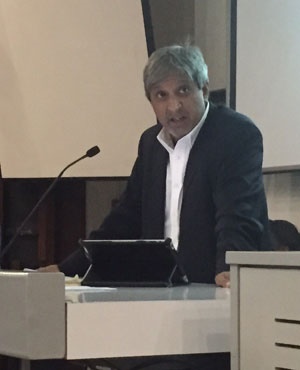
One of the major transformation challenges facing South Africa is that of unaffordable university fees.
Universities generally obtain funding from government subsidies, student fees and third-stream income. The latter is largely dedicated to contract research or tied to specific projects. With government subsidies coming in at below inflation, the only alternative universities have is to source funds from student fees.
We recognise that it places a significant burden on students and families, especially in the current economic environment. But we are caught in a pincer movement. Universities have no choice but to increase student fees to remain sustainable and offer a quality education.
This year, Wits’ utility bills increased by between 13% and 18%, while the rand/dollar exchange rate fell by about 22%. This has resulted in a substantial increase in what we have to fork out for library books, journals, electronic resources and research equipment procured in dollars and euros.
Salary increases for academics are set at 7% based on a three-year cycle, and these increases are necessary to ensure we retain the best intellectuals. Generic inflation is hovering at around 6%, which affects all other expenses the university has to cover. The subsidy increase from government is expected to come in at around 5% and the net effect is that we have no choice but to make up our income to cover our expenditure through student fees.
Despite these issues, we should continue to think strategically and imaginatively about what is possible. The higher education sector needs to be better funded if we are required to continue to develop the high-level and scarce skills to respond to national challenges and remain globally competitive.
A new student funding model will require the buy-in from all stakeholders if it is to be successful. For example, for next year, R11.5 billion has been allocated to the National Student Financial Aid Scheme (NSFAS) which, as we know, is not enough to cover all students in the system. The total cost of the fees for every student in the system, rich and poor, black and white, is less than R20 billion. If the NSFAS allocation were used as collateral, banks could grant loans and easily cover the fees of all students. Granted, students would then graduate with debt, but this is not very different from what exists now. Such a partnership between the state and banks could resolve the biggest cause of both uncertainty in student lives and instability in the university sector.
We are at a strategic moment in our history. We have to confront issues of student fees and the underfunding of the sector at a time where we have unprecedented levels of student activism at all our universities.
The only resolution for a decline in student fees is for it to be matched by an increase in subsidies from the state or through new partnerships with the banks. It is time for us to find a lasting solution to put an end to the persistent student strikes.
Professor Habib is the vice-chancellor of Wits University




 Publications
Publications
 Partners
Partners








